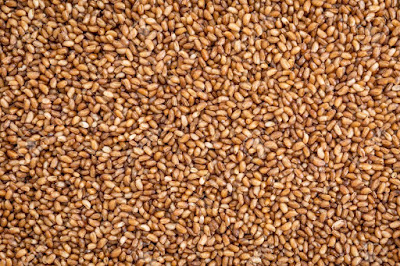Teff Grain Scientifically known as
Eragrostis tef, is a tiny grain widely used in Africa but is beginning to gain
popularity in the United States. It is used in a similar way as millet or
quinoa, but the grain’s small size means that it cooks very rapidly, thus using
less fuel and being more viable as a dietary staple for countries with limited
resources. It’s a protein-rich staple
food of the African nation that has received a great deal of attention lately,
and versatile applications make it an ideal “superfood” that people from
Hollywood to the Horn of Africa are clamoring for. It’s amazing how many
nutrients are packaged in such a small grain, but the mineral, vitamin, fiber,
and organic compounds found in teff grain make it an ideal nutritional source
for millions of people already. The most common use of teff is making flour and
bread, but it can basically be used in the same way as any other cereal grain.
Health Benefits of Teff Grain
Relieves Menstrual Problems: It has been known as an
anti-inflammatory and menstrually soothing agent for generations. Are you
suffering from a heavy menstrual flow, severe cramping, or other physical
manifestations of the monthly event? Adding teff to your diet could help reduce
the severity and live in comfort.
Boosts Digestive Health: Teff grain has been used for thousands of
years as a laxative, or at least a means to speed up the digestive process.
Supports Energy Production: Another mineral in high concentrations
in teff grain is copper, which plays important roles throughout our body
(energy production, growth and repair, blood cell creation etc).
Promotes Growth: Teff
can deliver substantial support for growth and development. Our bodies need
protein to create new cells, repair old ones, & general development. Having
teff in your diet is important for everyone, not just vegetarians and health
food fans.
Stronger Immune System: vitamin C is a crucial part of our immune
system, together with the high protein content of teff grain, the vitamin C
found in this useful dietary staple can have a significant impact on your
overall health.
Increased Circulation: Teff is commonly recommended for patients
suffering from anemia. Iron is a key element in our red blood cells, and when
there is an iron deficiency in the body, If you want to boost your circulation
and increase oxygenation to important organ systems and areas of your body,
then add some teff grain.
Diabetes Control: Ability to help diabetics manage their condition
is one of the side benefits often overlooked from teff grain. By helping to
slow the release of insulin into the bloodstream, teff can help diabetics
prevent the dangerous spikes and plunges that can occur if you aren’t careful.
Celiac Support: Celiac disease can be very painful and dangerous
for people who suffer from it, which is why gluten-free options like teff
grain, particularly since it’s so nutrient-dense, make for healthy, delicious
options for people avoiding gluten.
Healthy Bones: Teff contains a wide range of minerals and
nutrients. Calcium is an essential mineral for bone growth and development and
helps contribute to solid bone mineral density as we age. Adding teff can help
protect your bone integrity as you age.
Caution: There is no known allergenic nature of teff grain, nor
have side effects been reported with any consistency. In other words, it’s
simply the best grain option out there!

Comments
Post a Comment